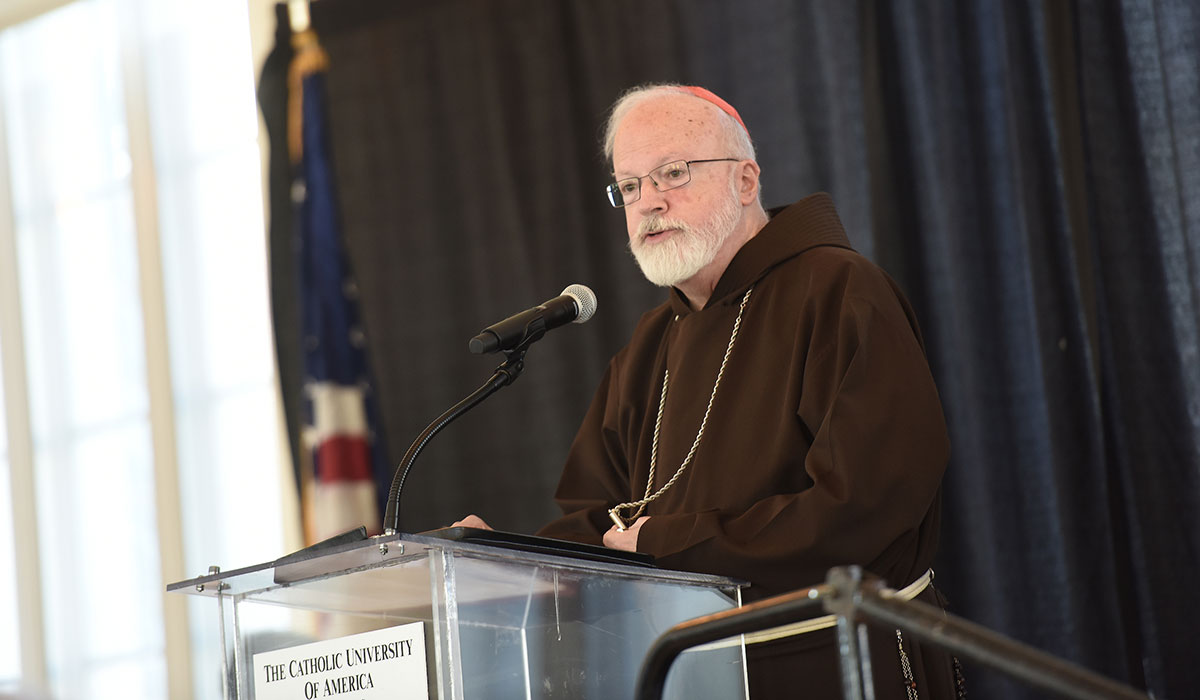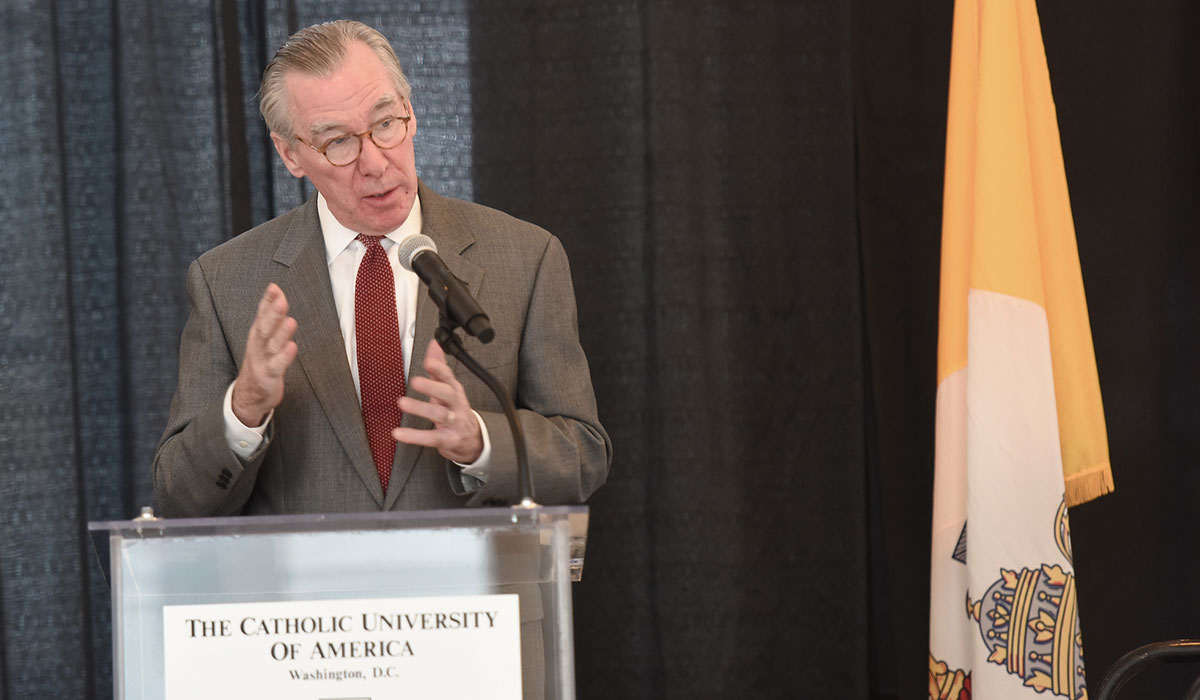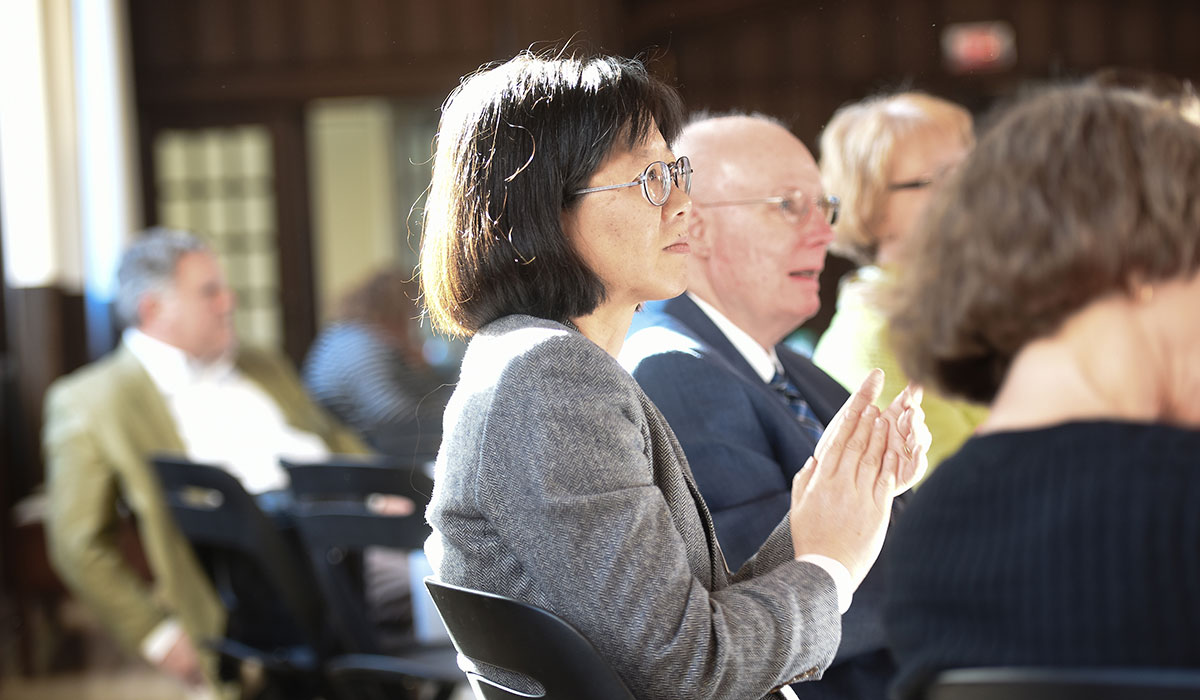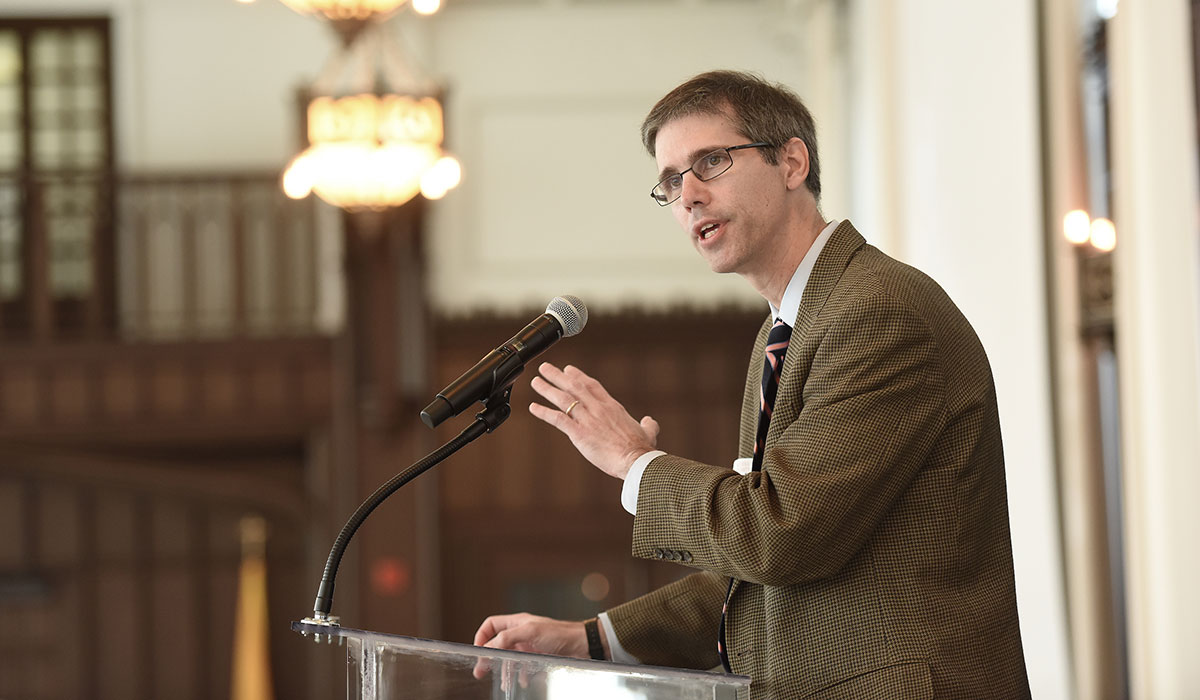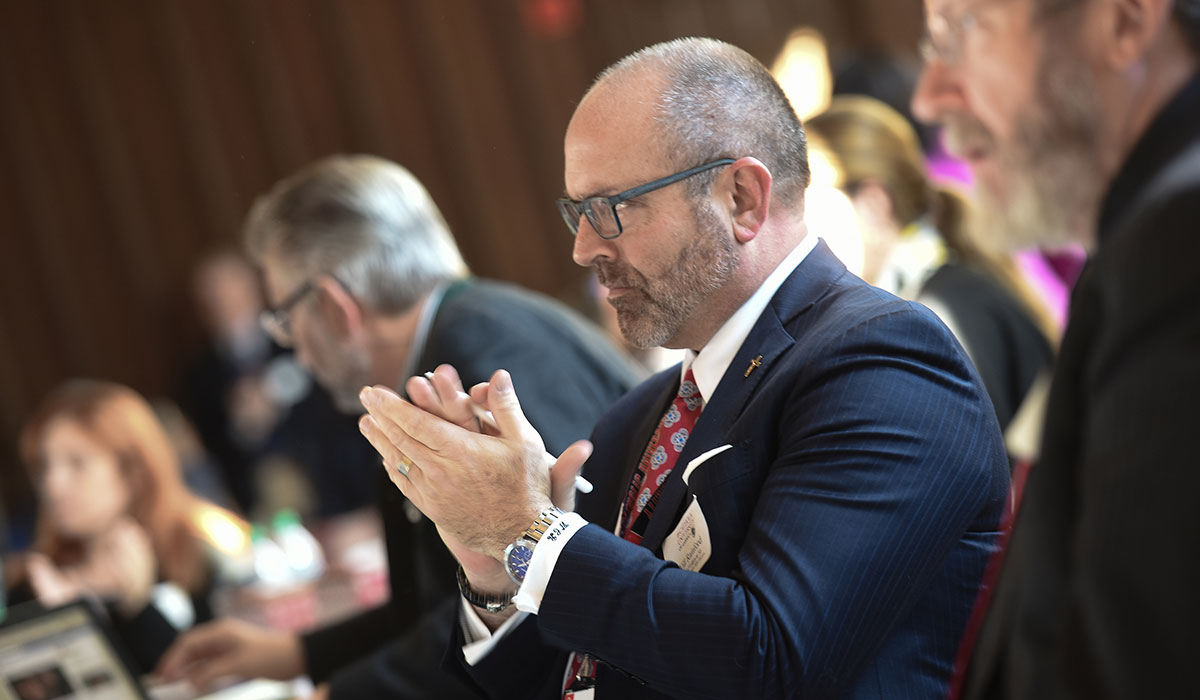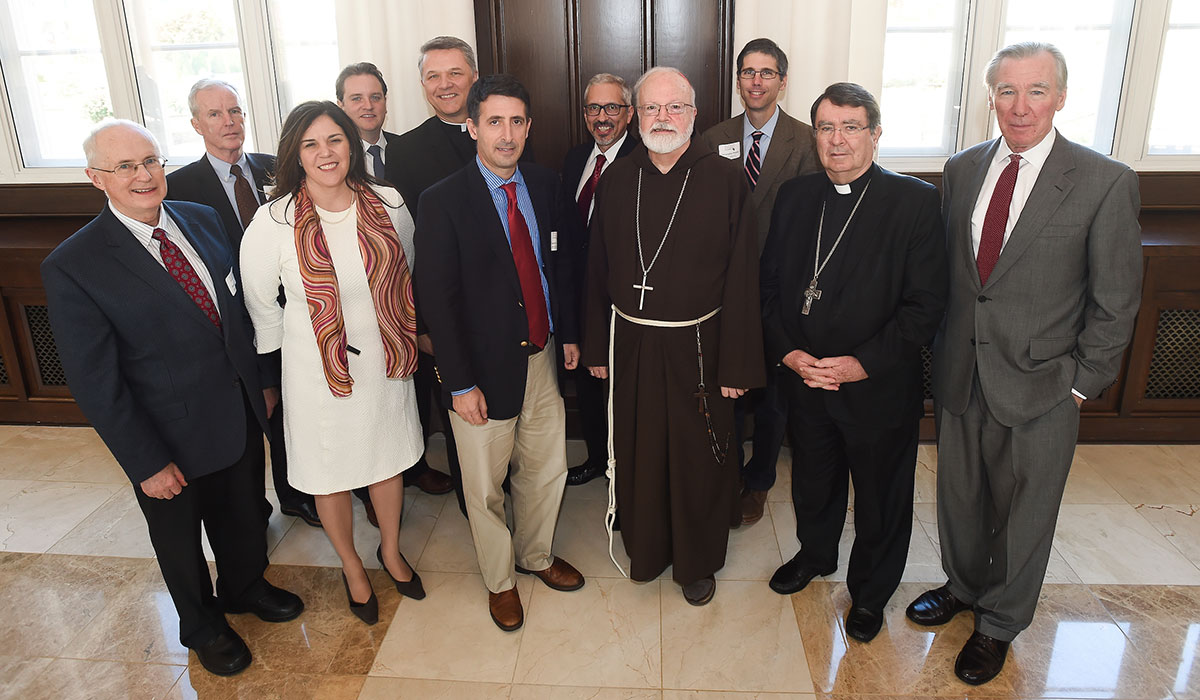
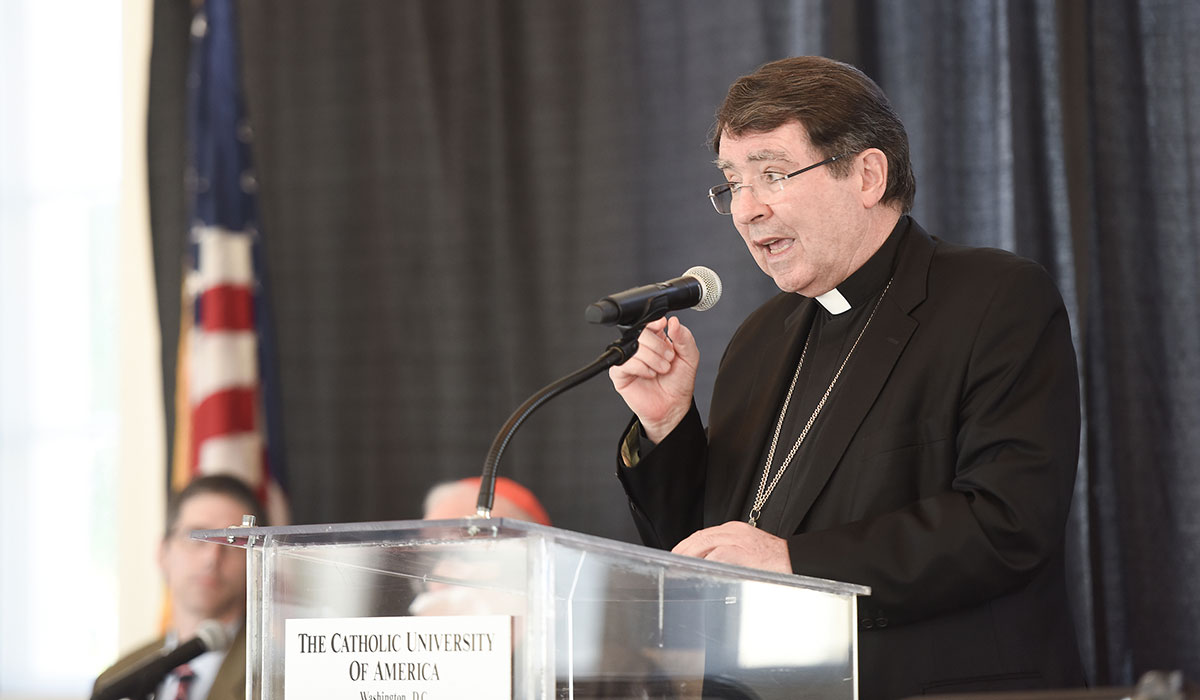
Addressing the nature and role of a Catholic university today, Archbishop Christophe Pierre, apostolic nuncio to the United States, noted that Catholic colleges and universities provide students with “an experience of encounter with reality in all its breadth and richness” and an “educational experience of handing on and freely speaking the truth.”
Archbishop Pierre was one of several speakers at Catholic University’s Nov. 10 symposium “Land O’Lakes at 50: The Future of Higher Education,” which commemorated the 50th anniversary of the widely discussed Land O’Lakes Statement and brought nearly 100 scholars and Church leaders from around the country to campus to discuss Catholic higher education’s role in society today and in the future.
“The aim of education is to help future generations grow in humanity,” Archbishop Pierre said. “That means to grow in intelligence and goodness, in the capacity for being just and for solidarity, and being open to live with Him who is the definite meaning of life.”
One challenge for Catholic higher education is today’s cultural context, in which “society wants to restrict faith to the private life,” he continued. Rather than ignoring that conflict, Catholic colleges and universities must face reality and continue to speak the truth of the faith in a distinct and honest way.
During his introductory remarks at the symposium, University President John Garvey reflected on the way some critics view the Land O’Lakes Statement as a “’declaration of independence’ from Church hierarchy” because of its call for Catholic colleges and universities to have full academic autonomy in the face of all outside authorities, including Church leadership.
Rather than viewing the Magisterium as “a handicap placed on Catholic scholars and Catholic universities that puts them at a disadvantage to their secular peers,” Garvey said it should be viewed as “a gift that Christ has given to the Church to preserve us in the truth.” The Magisterium is the Church's authority to establish its own authentic teachings.
“At The Catholic University of America,” he continued, “we are blessed with a unique relationship to the Magisterium and charged with a special responsibility to collaborate with the bishops for the good of the Church and of higher education.”
Cardinal Seán Patrick O’Malley, O.F.M. Cap., archbishop of Boston and a University trustee, also spoke during the symposium, reflecting on the relationship of the Church and the university from both the academic and ecclesial perspectives. He said the Land O’Lakes Statement — signed by Catholic university leaders in 1967 — called Catholic colleges and universities to reach for high academic excellence while maintaining their Catholic identities.
“Our institutions of higher learning will not survive unless we achieve both of these,” he added.
Cardinal O’Malley said the Land O’Lakes Statement was a continuation of the discussions from the Second Vatican Council, which called for an increase in lay leadership in the Church. Since the statement was signed, more Catholic colleges and universities are under the leadership of laymen and women, who are then tasked with maintaining the campus’s faith identity.
Though demographics may change, Cardinal O’Malley said institutions of Catholic higher education must continue to debate and discuss the “pressing issues of our time,” including topics like immigration policy.
“It is better to have the debates than for the Catholic universities to be beacons of faith that are silent and separate from the issues of our time,” Cardinal O’Malley said. “As a society we need to recapture the capacity for civility and even charity in our public life … Catholic universities can — and I hope, will — contribute to a solution.”
Catholic colleges and universities also allow students to explore a more complete picture of the world around them, said Aaron Dominguez, dean of the School of Arts and Sciences and professor of physics.
“[At Catholic universities,] students are free to study and learn our disciplines, and ask questions we couldn’t ask elsewhere, like what is the meaning of this? How can we do this the right way? What is the truth?” he said.
“More than a college where you can go to church when you want, and more than a place with reminders of our faith, it should be a place that shines light on the world by implementing our faith in reason.”
